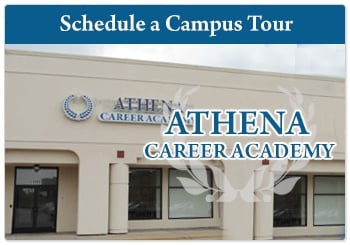Practical Nursing Program In Less Than One Year? The Answer is Yes!
Posted On January 12,2016
It’s estimated that the demand for practical nurses will increase by as much as 22 percent through 2020. This is due in large part to the growing number of aging baby boomers. PNs work in a variety of settings including hospitals, private practice and urgent care clinics, specialty clinics, nursing homes, and home health agencies. There is also opportunity for career growth by continuing education to transition to an RN.
How long is an PN Program?
 As a general rule, a practical or vocational nursing program last for one year. These courses are typically available at technical or community college institutions. In some cases, the individual school may require prospective nursing students to complete prerequisite courses. Students may also be required to pass basic skills and aptitude tests before entering the nursing program.
As a general rule, a practical or vocational nursing program last for one year. These courses are typically available at technical or community college institutions. In some cases, the individual school may require prospective nursing students to complete prerequisite courses. Students may also be required to pass basic skills and aptitude tests before entering the nursing program.
If you’re interested in a career as a licensed practical or vocational nurse, you should contact your state nursing board to obtain a list of accredited nursing programs in your area. You should then contact the individual schools to learn their particular admissions requirements. Most nursing programs will require the following as part of their admissions requirements:
• High school and college transcripts.
• A completed application form.
• CPR certification.
• Current immunizations, including MMR, chicken pox, hepatitis B and C, tetanus, Tdap, and flu.
• Current tuberculosis test.
• Interviews with admissions staff or program director.
What should I expect from an PN program?
Nursing programs at accredited schools are standardized; however the class names may vary slightly. A typical nursing program will include the following courses:
• Pharmacology
• Nutrition
• Nursing fundamentals
• Mental health and psychiatric nursing
• Growth and development
• Nursing of mothers and infants
• Gerontology
• Anatomy and physiology
• Medical-surgical nursing
Most classes involve a combination of traditional lecture as well as hands-on practice where students are expected to demonstrate proficiency in the various skills taught during the lectures. During the latter part of the program, students get the opportunity to rotate through different clinical situations to get first-hand experience caring for patients.
What happens after I complete my program?
Because of the high level of patient responsibility, nursing is highly regulated, requiring both education and a license. Graduates must complete a state approved practical nursing program and pass the National NCLEX-PN Nursing Board Exam.The Board of Nursing regulates nursing education programs in Ohio that prepare students for initial licensure as a PN.
Duties of a practical nurse:
Depending on your state and work setting, your duties may include the following:
• Monitoring vital signs.
• Administering medications and injections.
• Charting and reporting patient’s condition to the RN and physician.
• Completing basic nursing duties such as starting IVs, bathing patients, inserting catheters, and changing dressings.
Job outlook and salary:
An estimated 170,000 new practical nurses will be needed over the next four to five years. Salaries vary across the country, but the median annual salary in 2012 was $42,400 according to the Bureau of Labor Statistics.

To learn more about a career in nursing, and whether it’s the right fit for you, schedule an appointment with Athena Career Academy today. One meeting with our Admissions counselors could help put you on the path to a successful career in nursing that could change your life for the better. Call 419-329-4075 today.
Athena Career Academy is located at:
5203 Airport Highway
Toledo, Ohio 43615
Hours: Monday – Friday 7:30AM to 4:30PM
Phone: (419) 329-4075